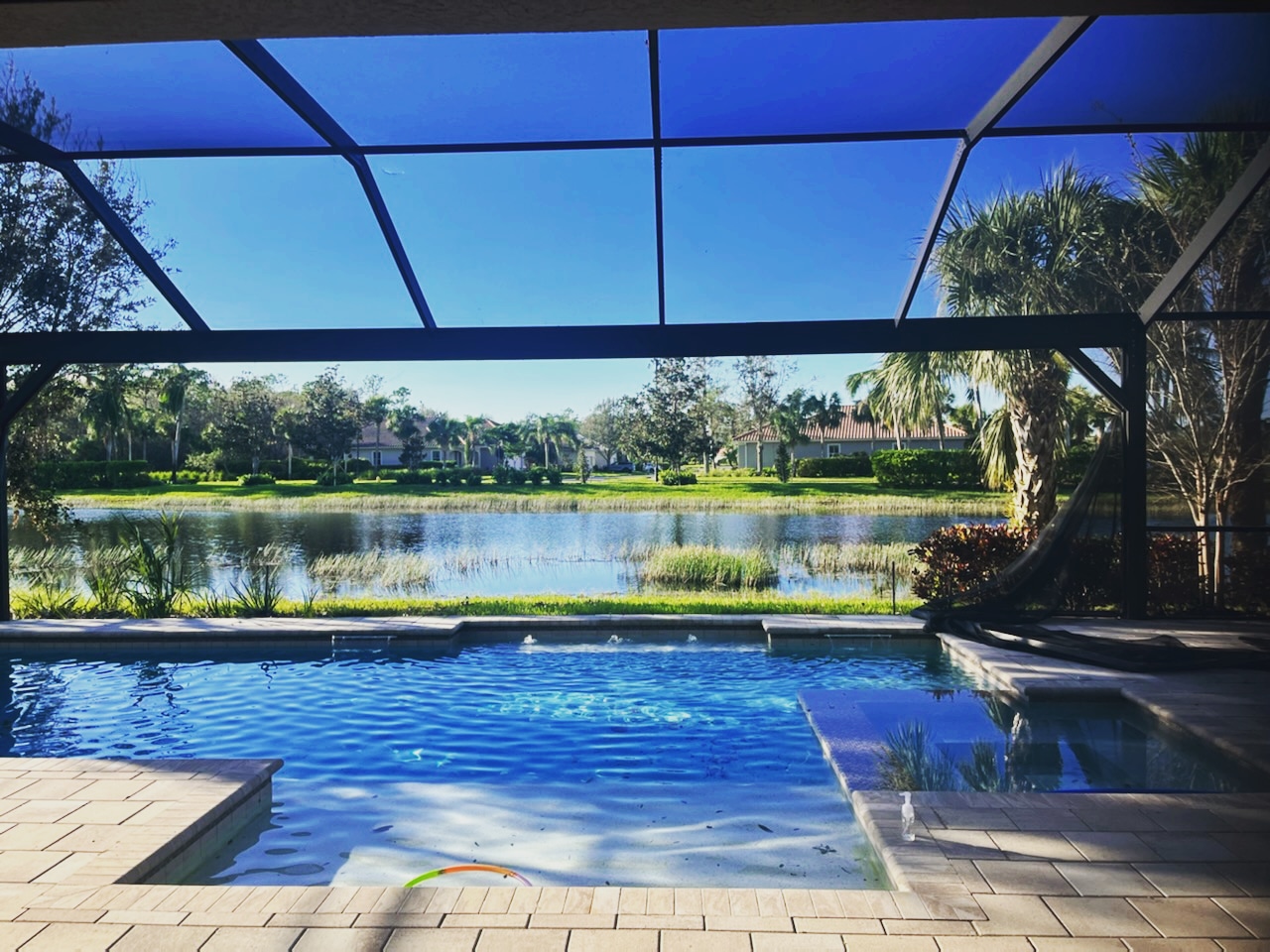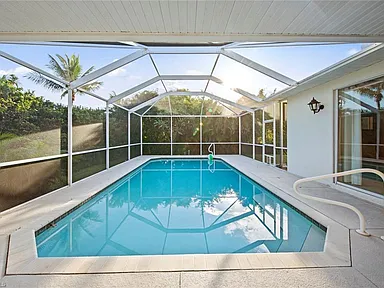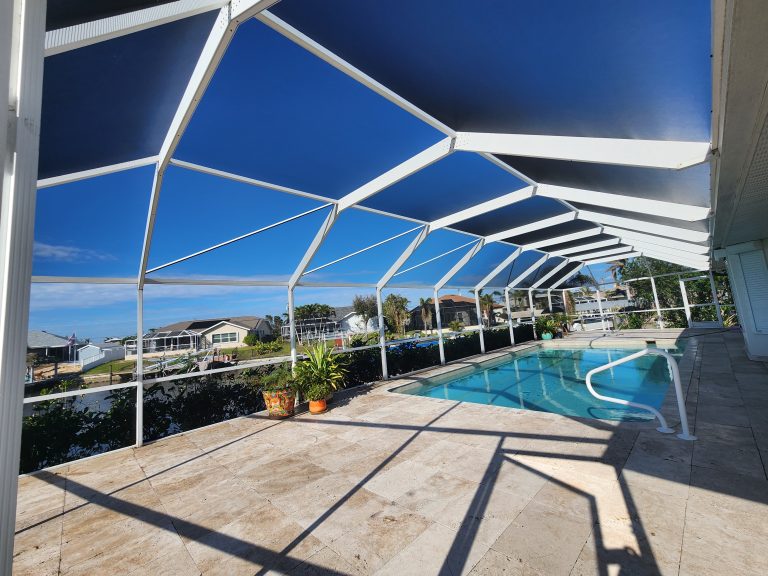Living in Florida comes with a host of perks, including warm weather, beautiful beaches, and plenty of sunshine. However, homeowners in Southwest Florida know that Florida’s weather can also be unpredictable and harsh at times. For those with lanai enclosures or pool cages, the unique climate presents a challenge to maintaining their screens’ longevity and effectiveness.
Let’s explore how Florida’s weather affects lanai screens and what you can do to keep them in great condition.
Heat and Humidity: The Silent Screen Killers
Florida is known for its high humidity and soaring temperatures. Over time, these conditions can weaken the integrity of lanai screens. The constant exposure to UV rays causes some materials to become brittle, fade, or lose their tension. Humidity exacerbates the issue by encouraging mold, mildew, and algae growth on screens, especially if they’re not cleaned regularly.
Pro Tip:
To combat heat and humidity damage, opt for durable screen materials like Phifer Glas-Shield. These high-quality screens are designed to withstand Florida’s extreme conditions while maintaining their functionality and appearance.
Wind and Storms: The Biggest Threats
During storm season, especially from June to November, Florida experiences heavy rain, strong winds, and sometimes hurricanes. These weather events can tear or loosen lanai screens, making them less effective at keeping out debris and insects. A well-maintained pool cage can prevent costly damage to your home.
How to Protect Your Screens During Storms:
- Secure loose screens before major storms.
- Inspect the enclosure frame for any weak spots.
- Schedule regular maintenance to reinforce screens and frames.
Salt Air: An Often-Overlooked Factor
For homes near the coast, salt air can be another contributing factor to wear and tear. Salt accelerates the corrosion of metal frames and can lead to discoloration or degradation of screen materials.
Maintenance Tip:
Rinse your screens and frames with fresh water regularly to remove salt deposits and extend the lifespan of your lanai enclosure.
Insect and Wildlife Damage
Florida’s warm climate is a haven for insects and wildlife. Screens are essential for keeping out mosquitoes, no-see-ums, and other pests. However, animals like birds or raccoons may damage screens in their attempt to enter or explore your lanai. Regular inspections can help identify small tears or holes before they become larger issues.
Seasonal Maintenance for Florida Screens
The key to preserving your lanai screens is consistent maintenance tailored to Florida’s unique climate. Here’s a checklist to follow:
- Regular Cleaning: Use a soft brush and mild soap to remove dirt, mold, and algae.
- UV Protection: Consider applying UV-resistant coatings to extend the lifespan of your screens.
- Annual Inspections: Schedule a professional inspection to identify and repair weak or damaged areas.
- Storm Preparation: Reinforce frames and remove loose debris around your lanai before hurricane season.
Why Professional Rescreening Matters
No matter how well you maintain your screens, Florida’s weather will eventually take its toll. When that happens, professional rescreening is the best way to restore your lanai’s functionality and appearance. At Best Rescreen Company, we specialize in providing high-quality rescreening services tailored to the needs of homeowners in Southwest Florida.
Our team uses durable materials designed to withstand Florida’s climate, and we offer custom solutions for your specific needs. Whether you need a complete rescreen or a quick repair, we’re here to help.
Contact Us for Expert Rescreening Services
Don’t let Florida’s weather ruin your lanai or pool cage. Contact Best Rescreen Company today to schedule a consultation. Visit our website at www.bestrescreenco.com to learn more about our services and request a quote.
Protect your screens, enhance your home, and enjoy Florida living to the fullest with the help of Best Rescreen Company.




